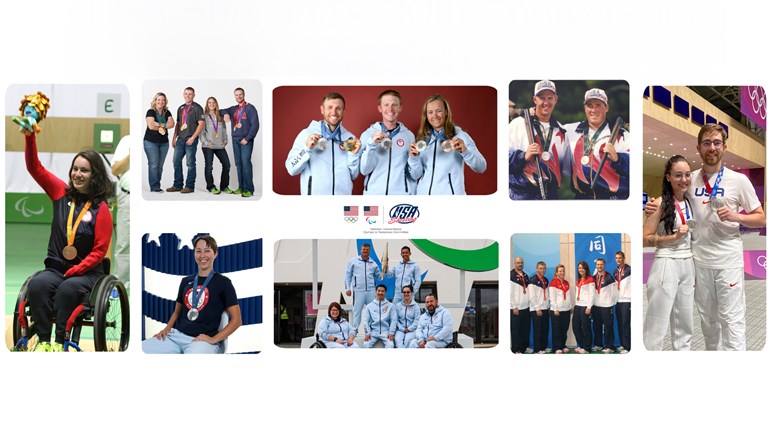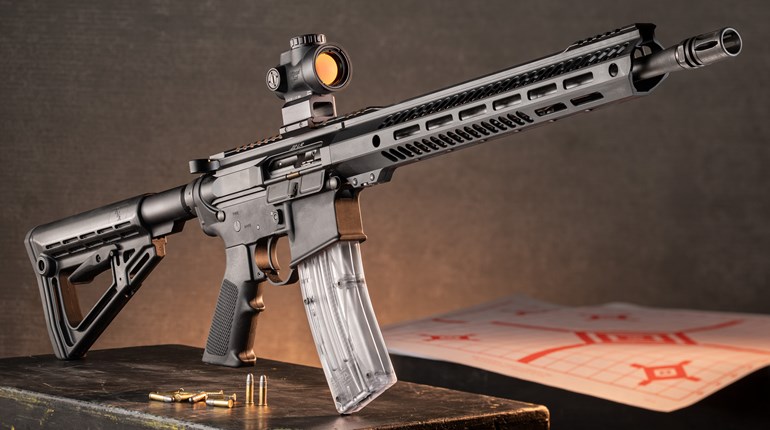
The freedoms of speech and association are non-negotiable in our great nation, so the NRA is headed to the U.S. Supreme Court to protect them. The petition for certiorari filed recently in the NRA’s First Amendment litigation against New York State officials confronts a scheme by former New York Gov. Andrew Cuomo (D) and his top financial regulator to interfere with the NRA’s banking and insurance relationships, all in an attempt to put the NRA out of business.
It is also an important salvo in a new battle over “corporate social responsibility” and whether everyone—no matter their political views—can access banking, insurance and other essential services gatekept by regulators.
The NRA’s lawsuit alleges that New York officials weaponized their powers to coerce banks and insurance companies to “drop the NRA” in opposition to our Second Amendment advocacy. The NRA took its fight to court in support of its members and their freedoms. Our claims withstood multiple motions to dismiss. But on appeal, a panel of Second Circuit judges decided it was “reasonable” for New York’s banking regulator to be concerned about the NRA’s political speech on “social issues,” and therefore warn regulated institutions against doing business with us. The appeals court even defended New York’s decision to selectively enforce insurance regulations against NRA-related products, offering companies leniency for unrelated insurance-regulatory infractions if they severed ties with the NRA. We believe the Second Circuit is wrong, and in America, circuit courts don’t get the final say. So, we are taking our case all the way to the highest court in the land.
In this age of social media hyperbole, overwrought rhetoric, shrieking headlines and competing sound bites, it can be difficult to know when to pause and treat an issue with the gravity it seems to demand. So, let’s be blunt: This is a time for NRA members, and anyone else who cherishes their basic freedoms, to rally in support of this 150-plus-year-old association and our right to speak and peacefully associate. Powerful state-government regulators who oversee much of the U.S. financial sector should not be allowed to strip First Amendment rights from the NRA—or anyone else.
In this case, New York’s officials did this to achieve a political goal that Cuomo said out loud in a tweet on Aug. 3, 2018: “The regulations New York put in place are working. We’re forcing the NRA into financial jeopardy. We won’t stop until we shut them down.”
If this precedent is allowed to stand, politicians and government agencies would have license to wield their regulatory powers—including investigations, huge fines and more—to destroy any person, company or organization they might consider a political enemy. And they are doing more of this every day under the guise of promoting so-called Environmental, Social and Governance (ESG) trends, which aim to institutionalize progressivism in the corporate sector, so that banks and other private firms focus on suppressing speech (and gun rights) instead of just maximizing profits.
NRA Executive Vice President and CEO Wayne LaPierre describes it best.
“In the face of the Second Circuit’s decision, the stakes could not be higher. This is a moment of truth for our nation’s justice system. The Court must clarify the limits on governmental officials and affirm the freedoms of assembly and speech,” said LaPierre. “We believe that New York’s conduct in opposition to the NRA’s advocacy sets a dangerous precedent for our entire nation.”
Unless they are checked by the Supreme Court, some government authorities might use their power to financially imperil internet companies, or oil-and-gas developers, or gun stores, or labor unions, or anyone else who fails to adopt “ESG” priorities and to shun speakers with whom they disagree. This poses a massive threat to the First Amendment—so even the ACLU (American Civil Liberties Union) has gotten involved, siding with the NRA against New York’s blacklisting campaign. In a statement, the ACLU said that, if New York’s conduct is allowed to go unchecked, “[p]ublic officials would have a readymade playbook for abusing their regulatory power to harm disfavored advocacy groups without triggering judicial scrutiny.”
This massive First Amendment attack on America’s preeminent Second Amendment association actually began when a gun-control group (Everytown for Gun Safety) prodded New York’s authorities to go after the NRA in 2017. Everytown reportedly contacted the Manhattan district attorney and that office referred the matter to Maria T. Vullo, who was then the superintendent of the New York Department of Financial Services (DFS). (The DFS was created in 2011. Its superintendent was popularly labelled “the new sheriff in town,” as the new agency was given a lot of power over U.S. financial markets.)
Vullo was backed by Cuomo, who said in 2018, “If I could have put the NRA out of business, I would have done it 20 years ago.”
At Cuomo’s urging, Vullo soon began selectively targeting the NRA because of our Second Amendment advocacy and her anti-freedom agenda. “DFS urges all insurance companies and banks doing business in New York to join the companies that have already discontinued their arrangements with the NRA,” said Vullo in a 2018 press release. The press release also said the DFS would “urge” the companies it regulates “to review any relationships they may have with the National Rifle Association” for “reputational risk.”
This was a clear threat, as Vullo wielded vast regulatory authority over these institutions; in fact, beginning in February 2018, the NRA alleges that Vullo held several meetings with the executives of institutions that were doing business with the NRA. At those meetings, “she made back-channel threats that they cease providing services to the NRA in connection with affinity-insurance programs,” says the NRA’s petition to the Supreme Court.
Then, on April 19, 2018, Vullo and the DFS issued regulatory “guidance letters” to all banks and insurance companies doing business in New York. In the documents, DFS favorably cited groups that had “severed their ties with the NRA” as examples of “corporate social responsibility,” notes the NRA’s petition, and warned regulated institutions of “reputational risk” if they continued to have business “dealings with the NRA.” The message was clear. During the course of New York’s “blacklisting campaign,” several of our business partners severed ties with the NRA.
These threats from the DFS could not be taken lightly, as the DFS could fine companies hundreds of millions of dollars; indeed, in the first week of May 2018, DFS announced multi-million-dollar fines against two insurance firms that still dared to do business with the NRA. Those insurers quickly agreed to cease underwriting, managing or selling affinity insurance programs for the NRA, regardless of whether the insurance was legal. Shortly thereafter, a third firm, Lloyd’s, announced on May 9, 2018, that it had directed its underwriters to terminate all insurance programs associated with the NRA.
The lawsuit recounts a phone call from the NRA’s longtime insurance broker, Lockton, which was worried about “losing [its] license” to do business in New York, and internal documents from another insurance entity reveal that Vullo’s investigation had transformed the “gun issue” into a compliance matter. “The NRA has encountered similar fears from providers of corporate insurance, and even banks contacted for basic depository services. Before Vullo’s threats, the same banks engaged readily with the NRA,” says the NRA petition to the Supreme Court.
As a result, on May 11, 2018, the NRA sued Cuomo and Vullo in their official and individual capacities. The trial court upheld the NRA’s most important legal claims, but finally, as stated, the Second Circuit wrongly ruled that the NRA’s First Amendment rights were not infringed upon.
The Supreme Court, however, has long been a devout protector of the First Amendment; indeed, precedents, such as Bantam Books v. Sullivan (1963), hinged upon far-less-egregious infringements than what New York has clearly done in this attack on the NRA’s First Amendment rights.
Without the First Amendment right to advocate for our freedom, the NRA, and so many others, could be shut up, disenfranchised, cancelled and demonetized by government authorities. Such a future would be an affront to the “land of the free and the home of the brave,” as Francis Scott Key put it, that Republicans, Democrats and Independents have long known and loved.
We hope the U.S. Supreme Court hears our case and makes a stand for the freedoms in which we all believe.


































